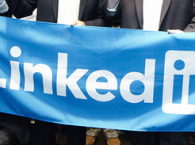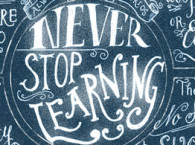When it comes to interviewing for a job, it’s rarely a one-and-done situation. Most interview processes will have a few distinct rounds. In my experience the average is around 2 or 3 rounds where you’ll meet with different people each time.
Deciding who to hire isn’t a one-person job. There are actually many different opinions that come together to make a final decision.
This post is going to cover who you might meet with in a typical interview process, why you’re being asked to meet with them, and what interview questions they might ask you based on their role.
THE RECRUITER
Why you’re meeting them
The recruiter is typically the gatekeeper and organizer of the entire hiring process. They will be the first person to screen your resume, the first person you interact with, and often also the first person to interview you. It is their job to screen through candidates and only move the most viable ones forward in the process – essentially to protect the hiring manager’s time.
Some recruiters may even conduct an initial phone screen before scheduling you to come into the office in person to make sure an in-person interview will be a good use of everyone’s time.
Types of questions to expect from recruiters
Most recruiters know the jobs they are hiring for fairly well but haven’t actually done the job themselves. Their focus will be on getting to know you, assessing your relevant skills/experiences at a higher level (based on what the hiring manager told them was important), and getting a sense of company fit.
They will also likely be your primary point of contact as you go through the rest of the process.
I find that recruiters will always ask things like “tell me about yourself”, “why are you interested in this role”, and “why do you want to work for this company” as well as other common questions like general strengths and weaknesses and behavioral questions which often start out with “tell me about time when…”
THE HIRING MANAGER
Why you’re meeting them
The hiring manager is the person who will be your future manager if you hired for the job. Out of all the people you interview with, this is the person who will know the work the best and have the most at stake.
There are two types of open jobs – new additions (a role that has been recently been created because of new business needs) or replacements (someone left a role so now it’s open).
If the role is a replacement, the hiring manager will have a really strong perspective on the type of person who will a great job based on whoever was in the role prior. If it’s a new job, they are the person who figured out what the job would entail and also wrote up the job description.
Ultimately, they are your future boss, so it’s important that you also assess them during the interview process.
Types of questions to expect
The hiring manager will likely ask some of the same questions that the recruiter did, but the difference is that they will dive into the skills and experiences required to do the job in much more detail.
When interviewing with the hiring manager, you should expect questions like “X is a really big part of this role – can you tell me how experienced you are in that area” or “have you ever [insert task relevant to the role]”.
I find that HMs care a lot more about technical and functional knowledge and spend less time with the “tell me about a time when…” behavioral questions favored by recruiters. After all, if you can’t get the job done, it’s 100% their problem.
THE GROUP HEAD (or the hiring manager’s direct manager)
Why you’re meeting them
In some interview processes, the hiring manager’s boss (or boss’s boss) will weigh in as well. This person might be the head of the group you’d be working on which means you’d interact with them in meetings and throughout the course of doing your job, but not as directly as the hiring manager.
Types of questions to expect
It’s hard to say what to expect in this interview because it depends on the personality of the interviewer and the team dynamics. Sometimes this interview is more of a high-level, check-the-box kind of conversation. Other times, they might get into as much depth as the hiring manager in terms of the daily responsibilities of the job.
While final decisions are usually left up to the hiring manager, this person’s opinion counts a lot. If your boss told you they didn’t think you should hire someone, what would you do?
OTHER TEAM MEMBERS
If the job you’re interviewing for is one where you’d be working closely with other members of the team (this is the case for most jobs) you may be asked to interview with them as well. They’ll be looking to get to know you and likely asking questions that relate to how the two of you would work together.
CROSS-FUNCTIONAL PARTNERS
Similar to the above, if the role is one that interacts with other teams throughout the organization, you may interview with people outside of your direct team.
As an example, if you’re interviewing for a social media coordinator role, it’s probably important that you meet the editorial team since you’ll be promoting many of the things that they create and write. If you’re a recruiter, you’ll probably meet some of the people whose teams you’d be recruiting for.
Similar to interviews with other team members, you can expect questions that focus on the partnership and potentially how you’ve partnered with similar groups in the past.
So, who is the most important person on the list?
A lot of people ask me whose opinion matters most in the interview process.
The answer is, they all do. If you’re being asked to interview with someone it means the recruiter and/or hiring manager values their opinion and will take it into account.
I’ve seen one negative interview knock someone out of the process even after others were positive.
That being said, consensus building is hard and it doesn’t always happen. At the end of the day, the person who gets to make the final call is usually the hiring manager. The new hire reports to them so it’s their call to make.
–
Wishing you lots of luck on your upcoming interviews, whoever they might be with. If you’re looking to do some really thorough prep, check out our new course on acing the job interview.





